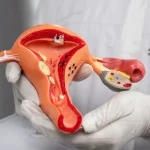
Deciding when to start fertility treatment is one of the most important choices intended parents face. The right timing depends on multiple factors—biological age, ovarian reserve, medical history, and family-building goals. This article explores the role of age and Anti-Müllerian Hormone (AMH) levels in guiding the right time to act.
Understanding Age and Fertility
Age is the single most important factor influencing fertility. Women are born with a finite number of eggs, and both egg count and quality decline over time:
- Under 35 : Higher fertility and stronger IVF outcomes
- 35–37 : Gradual decline in fertility
- 38–40 : Significant decline; higher risk of miscarriage
- Over 40 : IVF success rates drop sharply
The Role of AMH in Fertility
AMH is a hormone that reflects ovarian reserve (the number of eggs remaining). It is measured through a simple blood test. Higher AMH levels indicate more eggs available, while lower levels may suggest diminished ovarian reserve.
General AMH ranges:
- Over 1.0 ng/mL: Considered normal
- 0.5–1.0 ng/mL: Low ovarian reserve
- Below 0.5 ng/mL: Very low reserve
Balancing Family Goals with Fertility Timing
Fertility treatment decisions should align with family-building goals. Questions to ask include:
- Do you want one child or multiple children?
- How much time do you want between children?
- Are you considering egg or embryo freezing for future use?
- Are financial or career considerations influencing timing?
When Should You Seek Fertility Treatment?
- Under 35 : If you’ve tried for 12 months without success
- Age 35–39 : After 6 months of trying
- Age 40+ : Seek consultation immediately
Earlier evaluation is recommended if irregular cycles, medical conditions, or family history of infertility exist.
Patient Story
Riya, 34, and her partner wanted two children. After testing, her AMH levels were borderline low. With guidance from Surrogacy4All, they decided to begin IVF earlier than planned. They froze extra embryos, ensuring the possibility of a second child later. Riya said: “Knowing our AMH levels helped us make the right decision for our family goals.”
FAQs
Q : Can AMH predict natural conception?
Ans : Not directly, but it’s useful for estimating ovarian reserve for IVF.
Q : Should I freeze my eggs if my AMH is low?
Ans : Yes, early intervention can help preserve fertility options.
Q : Is it ever too late to try fertility treatment?
Ans : Options exist at any age, but success rates decline significantly after 40.
Conclusion
The right time to start fertility treatment depends on age, ovarian reserve, and family goals. By evaluating AMH levels and planning strategically, families can maximize their chances of success. Physician-led care ensures that decisions are personalized and proactive.
Learn more about fertility planning and embryo guarantee programs at click here | Contact info@surrogacy4all.com | Call 1-212-661-7177

Rashmi Gulati
Rashmi Gulati, MD, provides innovative, individualized health care that nurtures mind, body, and spirit. Since 2004 she has been the medical director at Patients Medical, where she delivers comprehensive personalized health care, treating each patient as a respected, unique individual. Through their integrative health care center in the heart of Manhattan, Dr. Gulati and her colleagues have become premier care providers serving patients locally and throughout the world.





